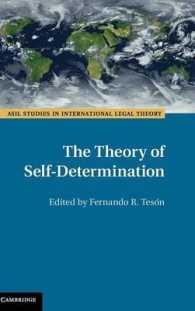- ホーム
- > 洋書
- > ドイツ書
- > Social Sciences, Jurisprudence & Economy
- > Education Science / Pedagogic
- > public education (school & university)
Full Description
This book defines and describes a new discipline, named "computational psychometrics," from the perspective of new methodologies for handling complex data from digital learning and assessment.








